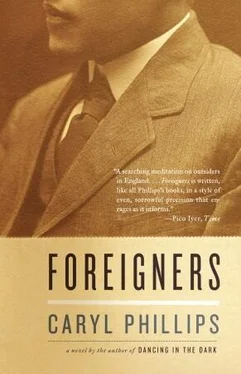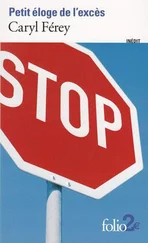It was clear, even to Turpin, that in order to protect his health, and his dignity, he should hang up his gloves. The business of boxing had begun to eat into his body, and although he remained a handsome man who had avoided the hammered spread of a boxer's nose, there was no longer any point to his continuing for he had no title to his name and there was little hope of his ever winning one again. His eyesight was damaged, his hearing was in danger of deteriorating even further, and he no longer had the stomach for the rigid discipline of training and preparing for top-class fights. His professional record of sixty-four wins (forty-five by knockout), eight losses, and one draw was something that he could be proud of, but Turpin was financially destitute, and he had no idea what had happened to all the money that he had earned in the ring. With no other sources of income open to him, he reluctantly accepted George Middleton's offer of employment in his Leamington Spa scrapyard. Turpin began working a nine-to-five shift, driving around picking up old car engines and bits of metal, then taking them back to the scrapyard where he would let loose on them with a sledgehammer. His take-home pay varied between two and four pounds a week, which was a world away from his days of first-class travel, five-star hotels, and custommade clothes and shoes, but it enabled him to make some kind of a living and afford a small house and a car. But there remained huge debts to the Inland Revenue, and Turpin had no idea how to begin to deal with these issues. He had survived twelve years as a top-class fighter and all he had to show for it were arrears that day and night weighed heavily on his mind. However, one thing he was sure of was the fact that he was finished with boxing. A few years earlier, while trying to forget yet another shocking defeat at the hands of a lesser man, he had written a poem for his manager, George Middleton, expressing his feelings about the sport that had both made him and was now breaking him.
THE COMEBACK ROAD
The comeback road is hard and long
The boys I'll meet will be hard and strong,
But my patience is good,
And my willpower strong.
I'll hear the bell
Which means time to go
But I'll do my best, and I'll have a go
Cause I've got someone to back me.
The manager I've got
Is the one for me
As I know he'll stick
In a real rough sea.
They say I've finished
But I'll prove 'em wrong
And I'll have a go
Cause my patience, willpower, and heart are strong.
If I make the grade,
On that one big day
We can look at them all
With a laugh and say,
We've done our best
For the game we love
Now there's no more kicks
And that's real good.
So we'll leave this game
Which was hard and cruel
Then down at the show, on a ringside stool
We'll watch the next man, just one more fool.
The money that Turpin was earning driving around looking for old cars and engines, and then cutting up the debris for George Middleton in his scrapyard, was barely enough to support Gwen and their growing family. Already there were two daughters, and Gwen was pregnant with a third child. Turpin was also finding it difficult to deal with the humiliation of such a public fall from grace. On 15 February, 1959, the New York Times ran a story entitled 'Turpin: A Story of Riches to Rags'. It reported that, 'Today, the one-time world champion, who earned more than $500,000, is a junk man. He drives about little Leamington Spa in an old truck picking up scraps of iron, derelict motors and hunks of metal nobody else wants. He takes the collection to the junkyard, batters it and sells the scrap. Turpin, now thirty, does not own the sledgehammer, the truck or the business. But once he was paid $200,000 for a single fight. In those days Turpin wore Savile Row suits and bench-made shoes. Today he wears grubby work clothes. At the peak of his career, he traveled around Europe and America living in the best hotels. Usually he had a few hangers-on. Now his home is a small house on a backstreet of an unlovely section of Leamington.'
Being a relatively fit coloured man, who was still a household name in England, there was one profession that would welcome Turpin with open arms — the burlesque of wrestling. The bouts were fixed, often crudely so, and the fighters divided into 'good' and 'bad', heroes and villains, with the coloured wrestlers — who fought under pseudonyms such as 'Johnny Kwango' or 'Masambula' — little more than novelty ring-fodder to be thrown around for the comic entertainment of the masses. Turpin began to travel around the country and 'fight' for cash payments which averaged about twenty-five pounds per bout. The money was not great, but the risk of injury was, and Turpin soon began to pick up leg and back injuries, which only added to the ignominy of his present situation and began to depress him even further. By the early sixties, the former world boxing champion began to develop a reputation in wrestling circles for being late, or sometimes forgetting about engagements altogether, and there were rumours that he had started to drink. Friends and family began to notice that his speech was sometimes slurred, and that he was beginning to display a number of signs that he might be growing 'punchy' from his many years in the boxing ring. However, given Turpin's current difficulties, his income as a wrestler was important to him and so, despite his own reservations and his evident discomfort, he persisted with the charade knowing that at some level at least these fight people were 'his people', and wrestling was certainly preferable to making pennies labouring in George Middleton's scrapyard.
Turpin continued to be hounded by the Inland Revenue for taxes that were payable on money that the authorities claimed he had earned at the height of his boxing career. In July 1962 he was formally declared bankrupt with assets of £1,204 and liabilities owing to the taxman of £17,126. This was a sum that had already been considerably reduced from a figure nearer to £100,000 by the tenacity of Max Mitchell, Turpin's accountant. Mitchell had detailed the unorthodox accounting procedures of the promoter Mr Jack Solomons, and he had drawn the Inland Revenue's attention to the fact that his client had assumed that income tax was being paid by his promoter and his manager. Furthermore, the sums that the Inland Revenue claimed had been paid to Turpin were, according to Mitchell, nowhere near the amounts that Turpin actually received. While Mitchell could not deny that Turpin had made a series of spectacularly bad investments, including the property at Great Orme (which, following an unpleasant split with Leslie Salts, had now been purchased by the Llandudno Urban Council at a loss to Turpin), he pleaded that the Inland Revenue should take into consideration the fact that Turpin was both naïve and somewhat innocent. For instance, everybody knew that Leslie Salts was a con-man, and Turpin was the last to realise that the staff at the Great Orme complex, including John Beston, his brotherin-law, were 'on the take'. In fact, Turpin's belated discovery that Joan's husband had been swindling him prompted him to break the man's nose. Part of Max Mitchell's plea to the Inland Revenue contained the following statement: 'As time goes on, the punching power of a boxer is enfeebled the longer he pursues his profession. His brain through constant pummelling becomes bemused. His eyes are affected. Deafness overtakes him. And in effect he is lucky if in the prime of his manhood he doesn't turn into a two-legged vegetable.'
Aside from bad investments and questionable payment practices, it was apparent that the main reason for Turpin's financial hardship was his propensity, at the height of his earning powers, to give away his money to people who were almost complete strangers. He helped those who claimed that they wished to start taxi companies, or buy pubs, or pay off their mortgages; almost any hard-luck story might well be concluded by a soft-hearted Turpin putting his hand into his pocket and pulling out a bundle of cash. But despite his almost reckless generosity, a part of Turpin remained practical, and after his bankruptcy hearings, Turpin, together with a few friends, began to search out those who had 'borrowed' money from him. He threatened more than one man in an attempt to retrieve his cash, but while some fearfully agreed to reimburse him with a weekly payment, most claimed that they had either lost the money, or it had been stolen from them. Somewhat bitterly, Turpin reflected, 'It cost me bleeding money every time I shook hands with somebody, didn't it?' Keen not to compound his present circumstances by ending up in jail on assault charges, there was little that Turpin could do beyond threaten, but by the mid-sixties most people were no longer in awe of the 'Leamington Licker'.
Читать дальше











![Unknown - [Carly Phillips] The Bachelor (The Chandler Brothe(Bookos.org) (1)](/books/174132/unknown-carly-phillips-the-bachelor-the-chandle-thumb.webp)
